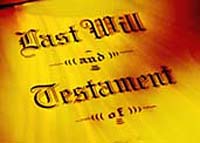 "I think it's great because it's not overreaching and it's not underreaching. It just kind of fits that one spot where we didn't have something: How does somebody with a disability put some money aside to do something? To basically be living like their peers," said Lori Guzman, an attorney in Apple Valley who works with families who have individuals with disabilities.
"I think it's great because it's not overreaching and it's not underreaching. It just kind of fits that one spot where we didn't have something: How does somebody with a disability put some money aside to do something? To basically be living like their peers," said Lori Guzman, an attorney in Apple Valley who works with families who have individuals with disabilities.
According to a recent article in the Pioneer Press, titled “Minnesota law would help parents of children with disabilities save for future,” right now people with disabilities can lose eligibility for public benefits once they reach $2,000 in savings. With an ABLE account, contributions of up to $14,000 per year are allowed under current rules, and the account could grow to $100,000 before Social Security Supplemental Security Income would be suspended.
These "ABLE" accounts—which stands for “Achieving a Better Life Experience”—allow parents to sock away money for blind or disabled children in the same kind of tax-advantaged 529 account they now can set up to pay for higher education for their college-bound kids.




























